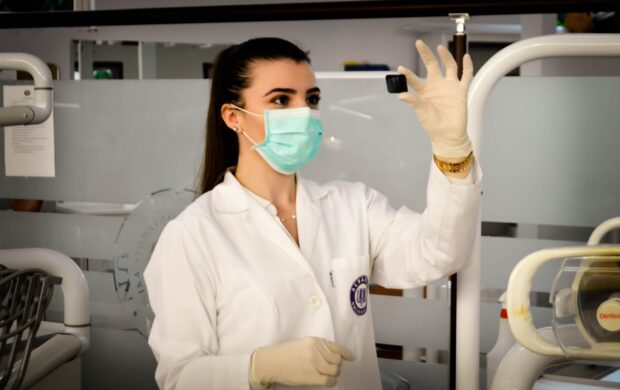Climate change poses numerous acute and chronic threats to human health. The changes in heat levels, precipitation, and other weather patterns, alongside impacts on the stability of many planetary systems that sustain us pose severe threats to human health, signs of which are already emerging in many parts of the world. The nature and scale of these changes present a challenge to the resilience and capacity of our health systems.
Last month, the Forum APAC team conducted a horizon scanning exercise focusing on the climate and health nexus in and around Southeast Asia, observing some trends and their implications on future human and societal health.
Rise in vector-borne diseases
- As global temperatures rise, disease vectors that were until now limited to tropical areas are venturing into more temperate regions, thus spreading diseases to new locations. Higher elevations regions (such as Kathmandu in mountainous Nepal), where dengue-carrying mosquitos were hitherto uncommon, have seen dengue becoming endemic in recent years. A recent paper in Nature has shown that over half of known human pathogenic diseases have been aggravated by climatic hazards.
- Many of these areas previously under-exposed to these diseases lack the institutional capacity/knowledge and established community best practices to respond to these novel diseases, thus presenting socio-economic challenges around health.
- Some impacts of climate change such as increased frequency and magnitude of floods — increase the exposure of populations to waterborne illnesses with countries that have recently experienced water-related hazards seeing an uptick in cholera.

Heat Stress impacts on Outdoor Work
- As temperatures rise and high humidity in many areas further limits the body’s ability to cool itself, outdoor workers, children and the elderly risk health complications from heat exhaustion. Researchers at the National University of Singapore (NUS) are conducting a study to see how susceptible construction workers are to heat stress at their worksites and dormitories.
- Those involved in the agriculture sector which is heavily reliant on outdoor work also face similar risks. Various regions have reported severe exhaustion and decrease in crop yields due to the heat stress faced by farmers and field workers. In many of these instances, migrant workers are most at risk as they lack the financial and political ability to escape their harsh reality or even highlight their concerns.
- At higher levels of warming (such as at 3 C global warming), heat stress is expected to reduce labour capacity in agriculture by 30-50%, increasing food prices and requiring higher levels of employment in the sector. This means the sector could see significant changes in crop production patterns and adaptations in the future, due to the impact of heat stress on workers.
Effects on Crops and on Nutrition
- Climate change threatens the resilience of the current food system, as its impacts could push a significant portion of the current global food production areas outside the safe climatic space. The effect of increased CO2 in the atmosphere could lead to reduced nutrition in global crops and modeling projects a negative effect on human nutrition because of rising CO2 levels.
- Could the effects of climate on crops and thus on health lead to a re-emergence of traditional, hardier crops that could be climate-resilient or would it push for development of more climate-resilient GMO crops?
- As alternative proteins and lab-grown meat gain popularity, partly in response to the climate change discourse, should we be considering their impacts on nutrition — and particularly on the gut microbiome, given the growing focus on this aspect of human nutrition? Institutes such as the ASEAN Microbiome and Nutrition Centre might hold an answer there.
Effects on Medicine and Healthcare systems
- What role might those in the medical supply chains play moving forward, given both the carbon emissions of the industry and the ability of the sector to tackle increasing health risks of the climate crisis? On the mitigation aspect, from 2023, pharmaceutical company GSK is requiring suppliers to disclose and set targets to reduce carbon emissions and set delivery plans that align with the 1.5 ºC Science Based Targets initiative. This recognises that for GSK, 40% of its carbon footprint sits within its supply chain. Beyond climate mitigation (including the decarbonising of supply chains), do pharmaceutical companies also need to look at how they might tackle the increasing risks of diseases and provide equitable access to medications?
- If the impacts of climate change leads to a reduction of disposable income, what might be its effect on health spending, including diagnostics and precautionary spending?
- As new risks factors and diseases emerge due to climate change and its impacts, can the health system and its established practices change and adapt in a future-fit manner by becoming more agile and responsive to changes? Singapore’s Multi-Ministry Taskforce acted as an agile answer to the emerging, changing, and multi-sectoral impacts of the COVID pandemic. Will future-fit healthcare systems need to develop a similar kind of agile institutional structure? How could they develop more anticipatory practices and policies both at the community and state level? What might be the role of other entities (for instance, PR agencies involved in health communications) in a world where climate-related health impacts grow?
So What?
There is a growing understanding of the linkages between climate change and health, that it is impossible to have healthy people on a sick planet. The signals presented here demonstrate some health impacts that are already being noticed and felt by those most vulnerable. A warmer planet will present serious implications for a much larger portion of the population and many of the ecological, social, economic, and political systems that sustain us.
The risks that climate change poses to health highlights areas where different stakeholders can (and in fact, have the responsibility to) act to both mitigate and adapt to the health challenges of the future.
Regional Sensemaking
Every month, our global teams gather to look for signals of change and engage in rapid generative scanning to bring you our glimpses of the future. What are the implications of these signals? What bigger trends are they pointing towards? What if these various signals of change interacted with each other? What would that lead to? We know climate change impacts will affect regions unfairly, so why not produce multiple futures catering to our various contexts – social, cultural, environmental, and more?
Want regular insights and glimpses of the future straight to your inbox?




















Join discussion